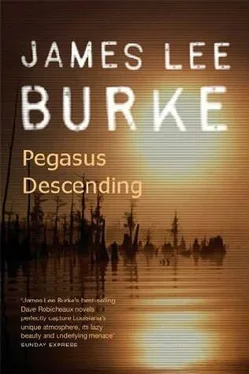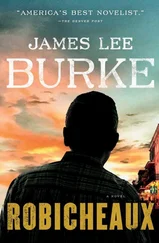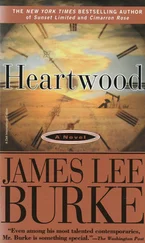“I asked him what was wrong and he said, ‘Nothing. Everything is fine. Those guys were just having a bad day.’
“Then he put my snorkel and mask on my head and walked me down to the water and swam backward with me on his chest, until we were at the end of a coral jetty. He said, ‘This is where the clown fish live. Anytime you’re having a problem, you can tell it to the clown fish. These guys love children. Come on, you’ll see.’
“That was the first time I ever held my breath and went all the way under the water. There were clown fish everywhere. They swam right up to my mask and brushed against my shoulders and arms. I never thought about those men again, not until years later when I realized they were probably the ones who murdered my father.”
I wanted to be sympathetic. Dallas had been a good man, a brave soldier, and a devoted parent. But he had been corrupted by his addiction and had become a willing party to an armored car and bank heist that cost not only his life but also the life of the teller who had tried to foil the robbery by pushing shut the vault door. Now Trish’s single-minded obsession with vengeance might cost Clete Purcel his life, or at least a large chunk of it, and that simple fact seemed totally lost on her.
“Why not let Whitey and his pals fall in their own shit? It’s a matter of time before either the Feds or the locals take them down,” I said.
“You said Bruxal was friends with Meyer Lansky?”
“That’s right.”
“Did the system get Lansky?”
“He died of cancer.”
“When he was an old man. You’re a laugh a minute, Mr. Robicheaux.”
I banged on the door for the guard to let me out. I was determined to let Trish have the last word, to be humble enough to remember my own mistakes and not contend with the certainty and confidence of youth. But when I looked at the earnestness and ego-centered determination in her face, I saw a moth about to swim into a flame.
“You probably noticed the hack who brought you in here seemed out of joint,” I said.
“The hack?”
“The female correctional officer. She was held three days in a male prison riot and passed from hand to hand by guys psychiatrists haven’t found names for. She ended up in these guys’ hands because she thought she knew what was inside their heads and she could handle whatever came down the pike. Don’t ask her what they did to her, because she’s never told anyone, at least no one around here.”
I saw her fingers twitch on top of the table.
On the way back to Lafayette, I left a message with Betsy Mossbacher’s voice mail.
LATER THAT AFTERNOON, she called me on my cell phone. “You visited the Klein woman in jail?” she said.
“Briefly. But I didn’t learn a whole lot.”
“What’d she tell you?”
“A story about her father and swimming with clown fish.”
“Clown fish?”
“I guess they’re a symbol of childhood innocence for her. Anyway, I think she deliberately got herself arrested.”
“We have the same impression at the Bureau. Some of her griffins have been showing up at three or four casinos where Whitey Bruxal is a part owner. It seems they make a point of standing in front of security cameras and getting themselves escorted off the premises.”
I waited for her to go on.
“Did I catch you on the john?” she said.
“No,” I lied. “I didn’t know you had finished. You think they’re planning to take down a casino?”
“I’d say it’s a diversion of some kind. But my supervisor says I always overestimate people’s intelligence.”
“You guys deal with higher-quality perps,” I said.
“Actually, he was talking about you and Purcel.”
Two uniformed deputies entered the restroom, talking loudly. One of them slammed down the seat in the stall next to me. “Hey, there’s no toilet paper on the roller. Get some out of the supply closet, will you?” he called out to his friend.

THAT NIGHT I DREAMED of New Orleans. Not the New Orleans of today but the city where Clete and I had been young patrolmen, in a cruiser, sometimes even walking a beat with nightsticks, at a time when the city in its provincial innocence actually feared Black Panthers and long-haired kids who wore love beads and Roman sandals.
This was before crack cocaine hit New Orleans like a hydrogen bomb in the early eighties and the administration in Washington, D.C., cut federal aid to the city by half. Oddly, prior to the eighties, New Orleans enjoyed a kind of sybaritic tranquillity that involved a contract between the devil and the forces of justice. The Giacano family ran the vice and maintained implicit understandings with NOPD about the operation of the city. The Quarter was the cash cow. Anyone who jackrolled a tourist got his wheels broken. Anyone who jackrolled an old person anywhere or stuck up a bar or café frequented by cops or who molested a child got his wheels broken and got thrown from a police car at high speed on the parish line, that is, if he was lucky.
The Giacanos were stone killers and corrupt to the core, but they were pragmatists as well as family men and they realized no society remains functional if it doesn’t maintain the appearances of morality.
New Orleans was a Petrarchan sonnet rather than an Elizabethan one, its mind-set more like the medieval world, in the best sense, than the Renaissance. In the spring of 1971 I lived in a cottage by the convent school on Ursulines, and every Sunday morning I would attend Mass at St. Louis Cathedral, then stroll across Jackson Square in the coolness of the shadows while sidewalk artists were setting up their easels along a pike fence that was overhung by palm fronds and oak boughs. At an outdoor table in the Café du Monde, over beignets and coffee with hot milk, I would watch the pinkness of the morning spread across the Quarter, the unicyclists pirouetting in front of the cathedral, jugglers tossing wood balls in the air, street bands who played for tips knocking out “Tin Roof Blues” and “Rampart Street Parade.” The balconies along the streets groaned with the weight of potted plants, and bougainvillea hung in huge clumps from the iron grillwork and bloomed as brightly as drops of blood in the sunlight. Corner grocery stores, run by Italian families, still had wood-bladed fans on the ceilings and sold boudin and po’boy sandwiches to working people. Out front, in the shade of the colonnade, were bins of cantaloupe, bananas, strawberries, and rattlesnake watermelons. Often, on the same corner, in the same wonderful smell that was like a breath of old Europe, a black man sold sno-balls from a pushcart, the ice hand-shaved off a frosted blue block he kept wrapped in a tarp.
Traditional New Orleans was like a piece of South America that had been sawed loose from its moorings and blown by trade winds across the Caribbean, until it affixed itself to the southern rim of the United States. The streetcars, the palms along the neutral grounds, the shotgun cottages with ventilated shutters, the Katz and Betz drugstores whose neon lighting looked like purple and green smoke in the mist, the Irish and Italian dialectical influences that produced an accent mistaken for Brooklyn or the Bronx, the collective eccentricity that drew Tennessee Williams and William Faulkner and William Burroughs to its breast, all these things in one way or another were impaired or changed forever by the arrival of crack cocaine.
Or at least that is the perception of one police officer who was there when it happened.
But in my dream I didn’t see the deleterious effects of the drug trade on the city I loved. I saw only Clete and me, neither of us very long out of Vietnam, walking down Canal in patrolmen’s blues, past the old Pearl Restaurant, where the St. Charles streetcar stopped for passengers under a green-painted iron colonnade, the breeze blowing off Lake Pontchartrain, the evening sky ribbed with strips of pink cloud, the air pulsing with music, black men shooting craps in an alley, kids tap-dancing for change, the kind of moment whose perfection you vainly hope will never be subject to time and decay.
Читать дальше













